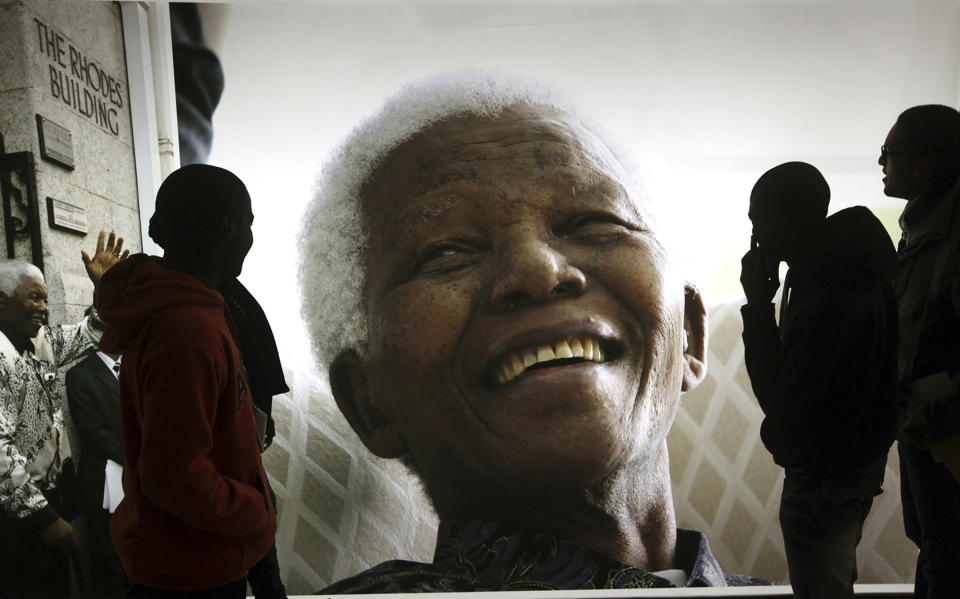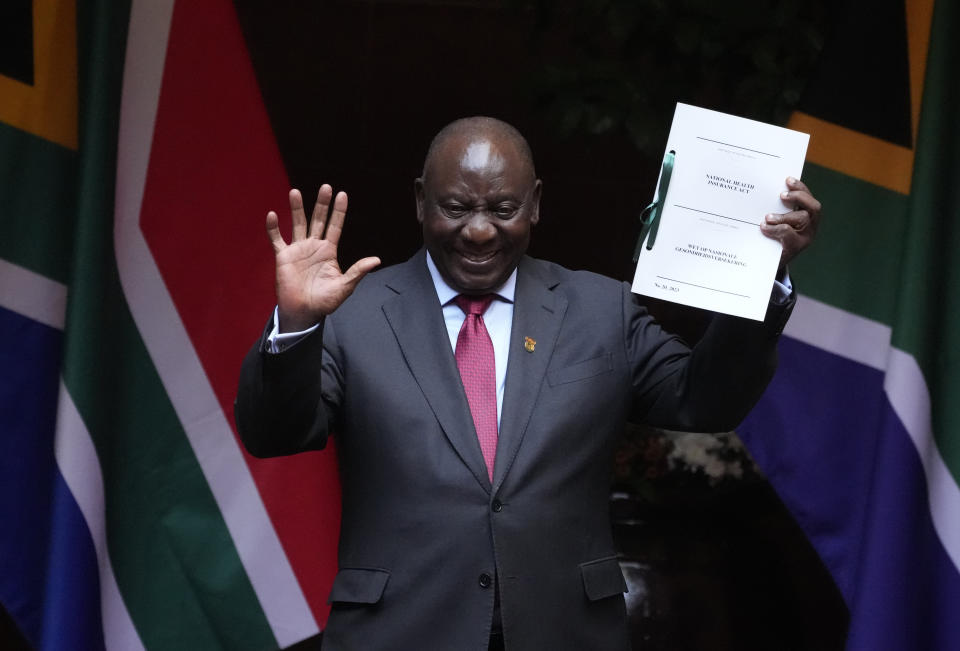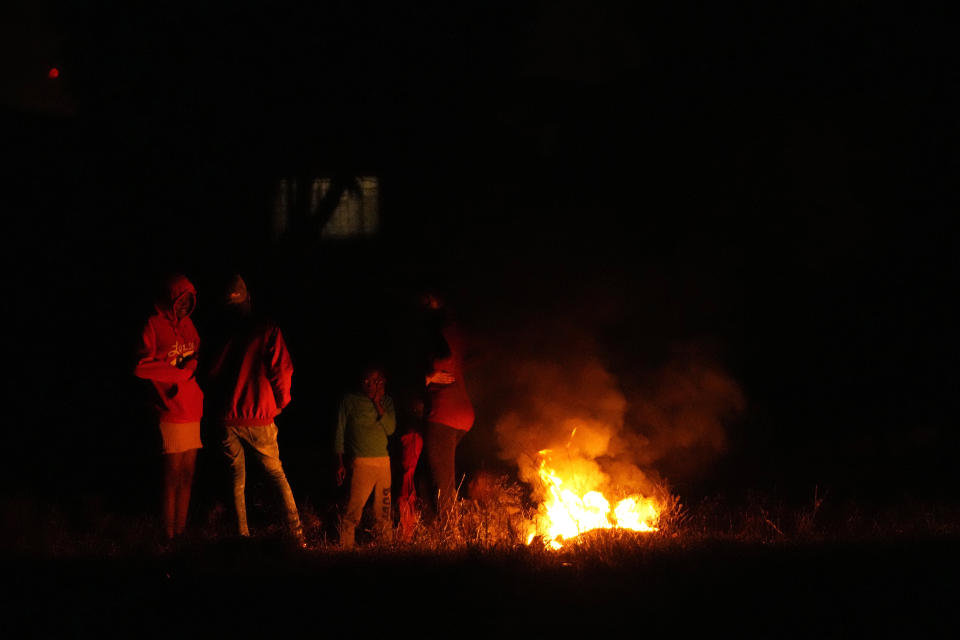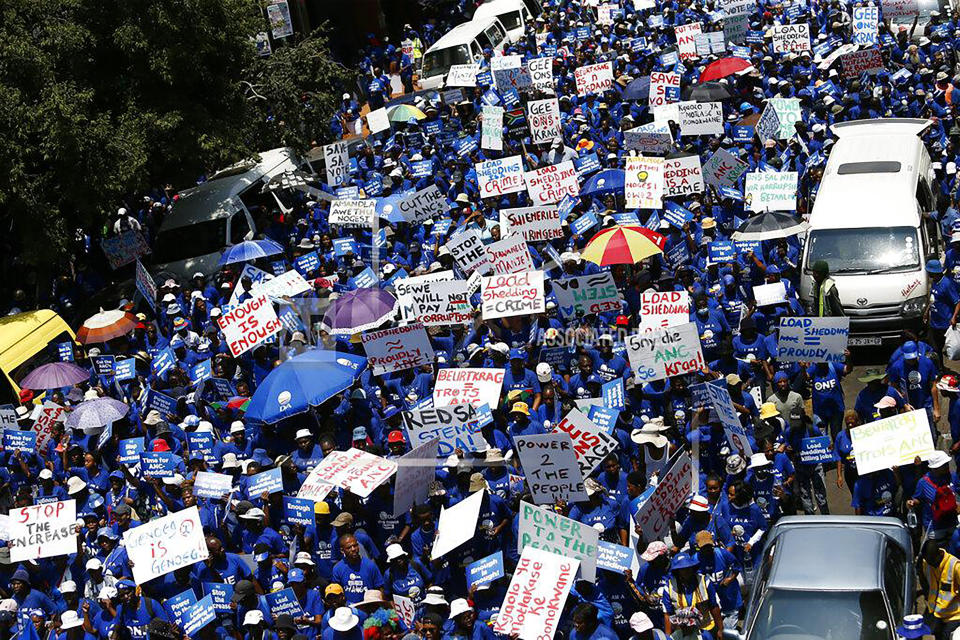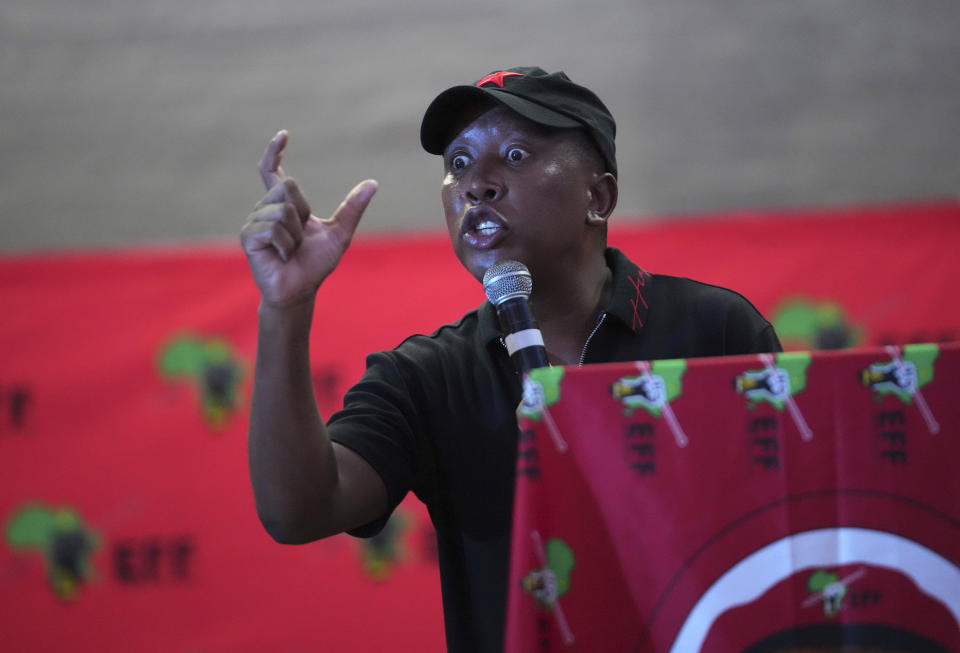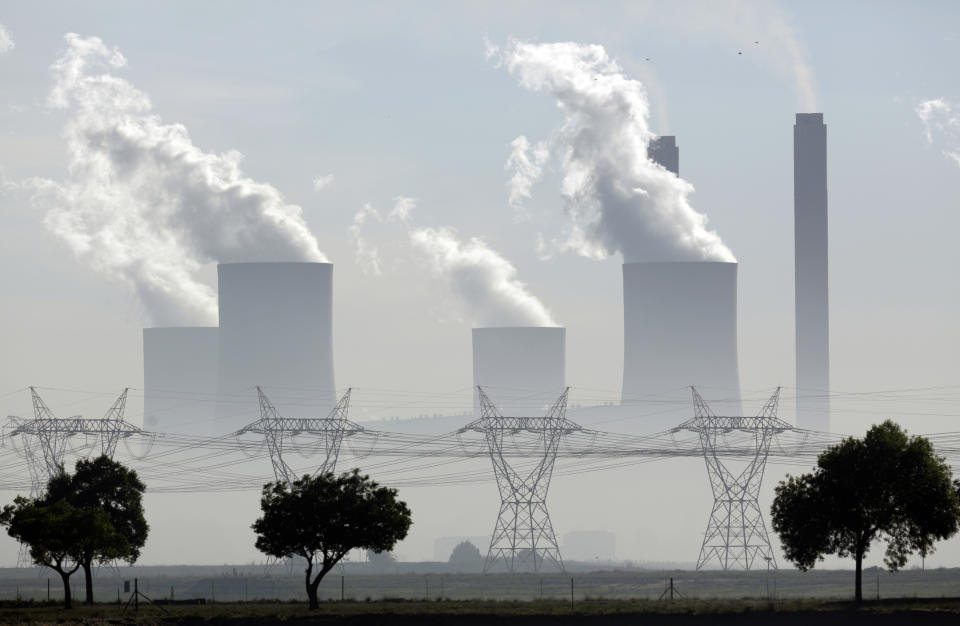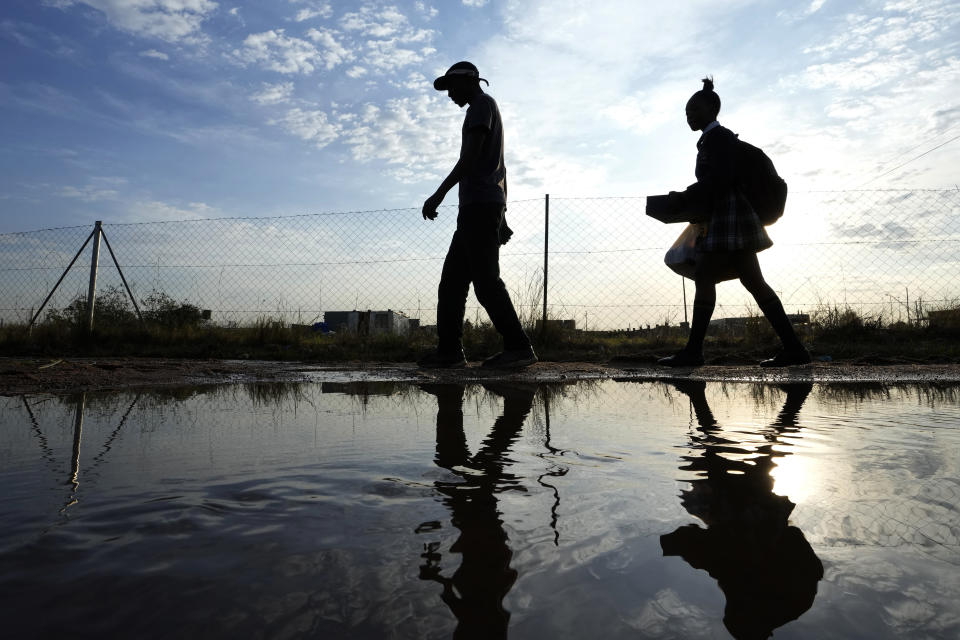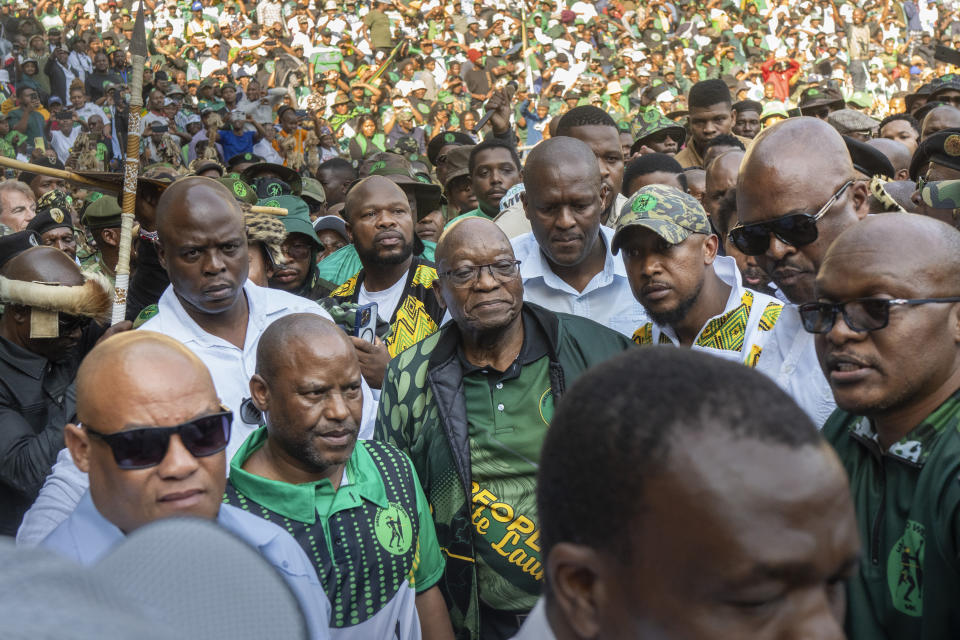South Africa election: How Mandela's once revered ANC lost its way with infighting and scandals
- Oops!Something went wrong.Please try again later.
- Oops!Something went wrong.Please try again later.
CAPE TOWN, South Africa (AP) — For years, the African National Congress rose above politics in South Africa. It was a movement dedicated to freeing Black people from the oppression of white minority rule and to the lofty principle of democracy, equality and a better life for all South Africans.
It was widely revered as a force for good under Nelson Mandela, who spent 27 years in prison for his opposition to the apartheid system of racial segregation.
But 30 years after the ANC transformed from a liberation organization to a political party in government at the end of apartheid in 1994, it faces growing dissatisfaction from South Africans who feel it has failed to live up to its promises.
South Africans will vote on May 29 in a national election that could be the biggest rejection yet of the ANC, which has governed one of Africa's most important countries largely unchallenged since it led the fight to bring down apartheid.
Now, the ANC is for many a byword for graft and failed government. Here's how the famous party lost its way:
BROKEN PROMISES
While the end of apartheid gave every South African the right to vote and other basic freedoms, the challenge for the ANC was to convert that into a better life, especially for the Black majority who had been systematically repressed.
That has been difficult for the ANC government to sustain after some early success in raising living standards in its first 10 years in power. South Africa sits today with one of the highest unemployment rates in the world, is still ranked as one of the most unequal countries, and its widespread poverty — which still disproportionately affects Black people — spurs most of the criticism of the ANC's three decades in charge.
The ANC has often pointed to the difficulties in reversing nearly a half-century of racist laws under apartheid and hundreds of years of European colonialism before that, which kept millions in poverty. It maintains that South Africa is a better country than it was under apartheid and that is undoubtedly true.
But the most pressing problems for many South Africans in 2024 boil down to a failure of basic government services, with communities across the nation regularly protesting against the lack of electricity in their neighborhoods, broken or nonexistent water and sewage systems, garbage piling up on streets, and a shortage of proper housing that leaves millions living in shacks.
CORRUPTION
While around half of South Africa's population of 62 million live under the poverty line, according to the World Bank, ANC officials have been implicated in enriching themselves in a succession of corruption scandals.
Corruption is alleged to have been especially bad under former President Jacob Zuma, who was accused of allowing a decade of rampant graft to play out before he stepped down in disgrace in 2018.
There were countless stories of wrongdoing, with politicians receiving bribes in return for influence or lucrative state contracts as a culture of graft pervaded all levels of government. South Africans heard how senior ANC figures allegedly received money to buy expensive suits, throw lavish parties or renovate their homes.
The disappearance of $15 million designated for the removal of harmful asbestos from the houses of poor people was one of many cases that enraged the country. President Cyril Ramaphosa promised to clean up the ANC when he succeeded Zuma, but he was involved in his own scandal and survived an impeachment vote.
The ANC's reputation hasn't recovered.
INFIGHTING
The ANC has been hampered by infighting since Mandela stepped down as president in 1999 after one term and handed over to a younger generation.
His successor, Thabo Mbeki, was forced out as Zuma undermined his position as the head of the ANC. The party turned on Zuma, who is disqualified from running in next week's election, when the corruption allegations became overwhelming.
Ramaphosa has spent his first term as president since 2019 battling a part of the party still loyal to Zuma. In its early days, the ANC celebrated that it was a “broad church” of people dedicated to freedom and democracy. It now has factions much like any other political party, affecting its ability to solve South Africa's problems.
THE FUTURE
From a dominant position when it once commanded 70% of the vote, the ANC has seen people gradually desert it, especially among a new generation of South Africans who don't remember apartheid.
The election is widely expected to be a landmark moment for the country's post-apartheid democracy as recent polls have the ANC's support at less than 50%, suggesting it might lose its parliamentary majority for the first time.
The ANC is still expected to be the biggest party, but dropping below 50% would lead to it having to govern alongside others in a coalition.
That would be the biggest political shift in South Africa since the ANC ascended into the government and a humbling moment for a party Zuma once said would rule “until Jesus comes back.”
___
AP Africa news: https://apnews.com/hub/africa
